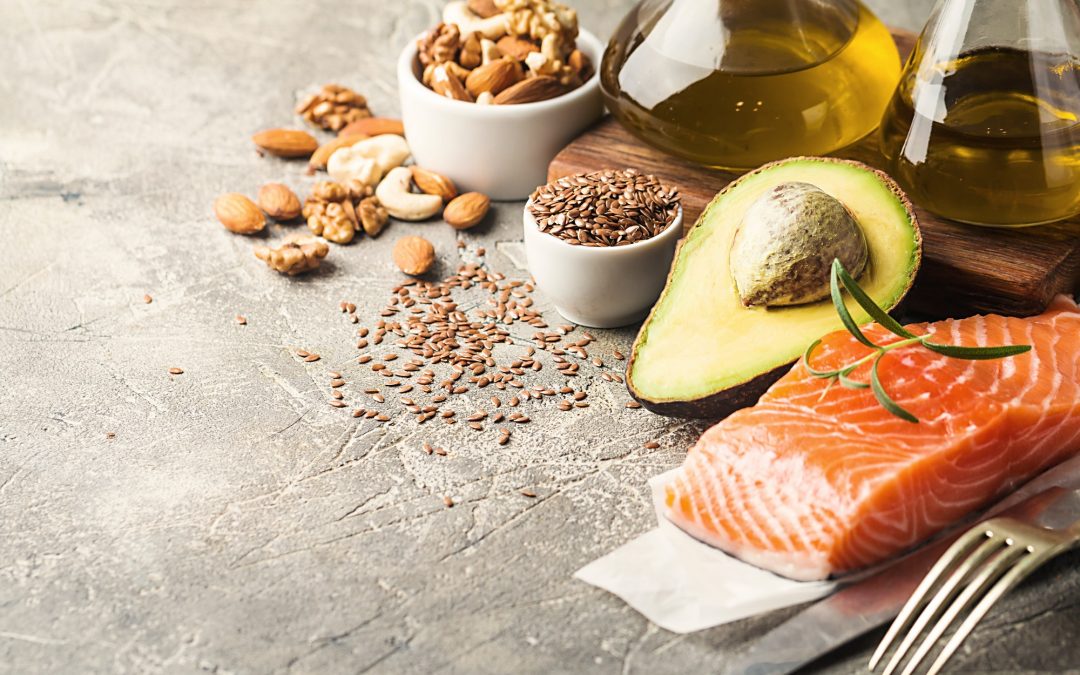When it comes to fat, we all assume it’s totally bad for you – but is that true? Learn about the connection between fat and heart health. Believe it or not, fat is actually a necessary nutrient that our bodies and diets need to have. But while fat is essential, there is a difference between having a healthy amount of fat and having too much of it. Dietary fats play a key role in giving your body the energy and support it needs for your cells to function. In addition, they help keep your body warm, absorb other nutrients, produce important hormones, and protect your organs. The following is an overview of the important role fat plays in your health – and which fats are unhealthy for you.
Dietary Fat and Your Health
 Dietary fats contain four major types: saturated fats, trans fats, monounsaturated fats, and polyunsaturated fats. Two of these types, saturated and trans fats, are considered the “bad” fats while the other two are the “good” types. Moreover, these four types of fats also have different chemical structures and physical properties from each other. To illustrate, the bad fats tend to be more solid at room temperature (e.g.: butter). In contrast, the “good” fats have a more liquid form (think of canola oil). Furthermore, these fats can have various effects on your body’s cholesterol levels. For example, eating foods that are high in saturated and translate fats will increase your LDL (“bad”) cholesterol levels. On the other hand, eating a diet higher in monounsaturated and polyunsaturated fats can lower this “bad” cholesterol.
Dietary fats contain four major types: saturated fats, trans fats, monounsaturated fats, and polyunsaturated fats. Two of these types, saturated and trans fats, are considered the “bad” fats while the other two are the “good” types. Moreover, these four types of fats also have different chemical structures and physical properties from each other. To illustrate, the bad fats tend to be more solid at room temperature (e.g.: butter). In contrast, the “good” fats have a more liquid form (think of canola oil). Furthermore, these fats can have various effects on your body’s cholesterol levels. For example, eating foods that are high in saturated and translate fats will increase your LDL (“bad”) cholesterol levels. On the other hand, eating a diet higher in monounsaturated and polyunsaturated fats can lower this “bad” cholesterol.
Fats and Calories
Regardless of the type of fat, every gram of fat contains nine calories per gram. Moreover, fats are more energy-dense than proteins and carbohydrates, with each of these providing four calories per gram. Whether you consume foods high in fat or not, keep in mind that eating too many calories can lead to weight gain. However, consuming foods with high levels of “bad” fats can also increase your risk of heart disease and stroke. Instead, you should replace these types of fats with the “good” types while also maintaining a nutritionally adequate diet.
The Outlook
 Staying away from bad fats and too much fat is important, but you should also choose healthier fats. For instance, you can consume liquid non-tropical plant oils, low-fat or nonfat dairy, and lean meats and poultry. As you create a healthy diet plan, you can include the foods you love so long as your choices emphasize an overall healthy eating pattern. If you want to give your heart health an extra boost, you can also take supplements like L-arginine Plus. Its ingredients are effective at promoting circulation, blood pressure health, cholesterol health, and more. If you’re ready to give your health the support it deserves, then choose healthy dietary fats and take L-arginine Plus.
Staying away from bad fats and too much fat is important, but you should also choose healthier fats. For instance, you can consume liquid non-tropical plant oils, low-fat or nonfat dairy, and lean meats and poultry. As you create a healthy diet plan, you can include the foods you love so long as your choices emphasize an overall healthy eating pattern. If you want to give your heart health an extra boost, you can also take supplements like L-arginine Plus. Its ingredients are effective at promoting circulation, blood pressure health, cholesterol health, and more. If you’re ready to give your health the support it deserves, then choose healthy dietary fats and take L-arginine Plus.

